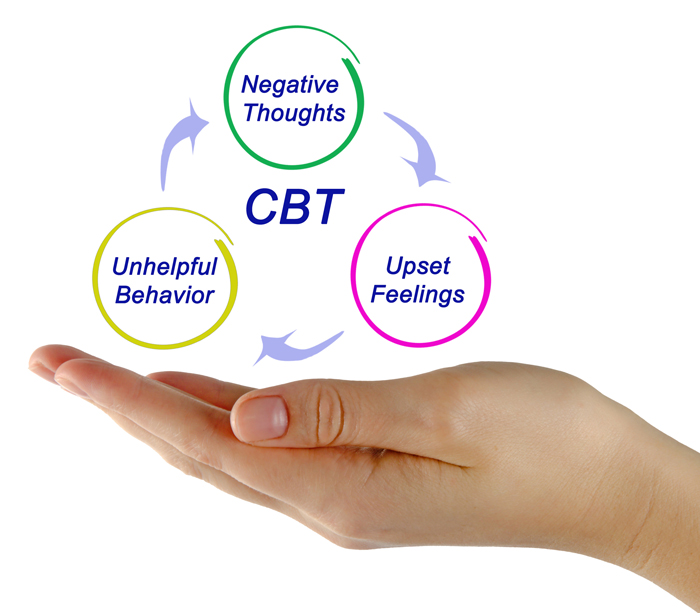There are many types of treatments available to individuals suffering from substance use disorder (SUD).
Most addiction treatment facilities will employ a combination of therapies to help addicted individuals find recovery. One of the most popular types of treatment is cognitive behavioral therapy (CBT). CBT is typically used in conjunction with other clinical methods. According to the National Association of Cognitive-Behavioral Therapists (NACBT), cognitive behavioral therapy is based on the idea that our thoughts cause our feelings and behaviors, not external things, like people, situations, and events. The benefit of this fact is that we can change the way we think to feel/act better even if the situation does not change.
The National Alliance on Mental Illness (NAMI) says that CBT focuses on exploring relationships among a person’s thoughts, feelings, and behaviors and that studies of CBT have shown it to be an effective treatment for a wide variety of mental illnesses, including depression, anxiety disorders, bipolar disorder, eating disorders, and schizophrenia. Individuals who undergo CBT show changes in brain activity, suggesting that this therapy actually improves your brain functioning as well.
How cognitive behavioral therapy is used in addiction treatment makes excellent sense.
CBT is a psychotherapy based on the cognitive model: the way that individuals perceive a situation is more closely connected to their reaction than the situation itself. A person who is trapped in addiction also tends to be trapped by negative thoughts and feelings. Depression is a common malady among addicted individuals. By identifying negative thought patterns and the destructive behaviors they lead to, these individuals can begin implementing positive changes. For example, a person may be plagued by negative thoughts such as, “What’s the point in trying to stay sober? I always relapse, so forget it.” A CBT therapist can help them learn to replace these types of thoughts with more positive expectations, such as, “I believe recovery is possible, and I will do my very best to reach that goal.”
If you or someone you know is struggling with addiction and would like to learn more about how cognitive behavioral therapy is used in addiction treatment, please reach out and speak with one of our counselors.
References:
NAMI: National Alliance on Mental Illness | Psychotherapy. (n.d.).
What is Cognitive-Behavioral Therapy (CBT) | National Association of Cognitive-Behavioral Therapists (n.d.).










